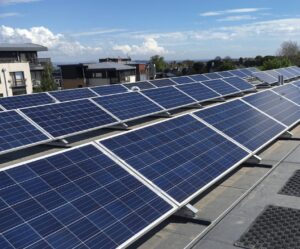The Solar Panel Subsidy in India is a pivotal initiative by the government, aimed at making solar energy more accessible and affordable, especially for homeowners. This solar subsidy 2026 is not just a financial incentive; it’s a strategic move towards a sustainable and energy-secure future.
What are Solar Panel Subsidies?
Solar panel subsidies are financial incentives or support mechanisms provided by the government to encourage the installation and use of solar panels for generating electricity. These subsidies aim to make solar energy more affordable for homeowners, thereby accelerating the adoption of renewable energy sources.

How get solar panel subsidy in India?
The Indian government, through the Ministry of New and Renewable Energy (MNRE), often offers various solar subsidy schemes for promoting solar energy. Gather all necessary documents required for solar subsidy application. This typically includes identification proof, address proof, and proof of property ownership.
Step 1: Download the Sandes App from the National subsidy portal
Step 2: Register on the national subsidy portal and submit the application.
- Ensure that the applicant’s name is the same as in the recent electricity bill.
- Uploading a recent electricity bill is mandatory.
Step 3: You will receive feasibility approval from DISCOM via registered email ID.
Step 4: Once the solar panel installation is completed, a work completion report and the net meter installation request need to be submitted
Step 5: After installation of the net meter and inspection by DISCOM, DISCOM will generate a commissioning certificate from the portal.
Step 6: Upon receipt of the commissioning report, submit bank account details and a cancelled cheque through the portal.
Step 7: Subsidy is disbursed to the bank account submitted by you.
Freyr energy will guide you through the entire process. Our liaisoning team will be in touch with you at every step to make the entire process hassle-free.
What are the eligibility criteria for the National rooftop solar scheme in 2026
To be eligible for the National Rooftop Solar Scheme in 2026, applicants must meet the following criteria:
- Be a permanent citizen of India
- Be over 18 years old
- Have their own house
- Have the necessary documents
- Have an annual income of less than Rs 1 or 1.5 lakh
- Not be involved in government service
- The maximum capacity for availing subsidy on solar panel is 10kW.
To install solar panels for homes and businesses, consumers can pay a down payment of 20%–30%. They will need to provide income proof, such as:
- ITR files for the last three years
- The most recent electricity bill for the last six months
- KYC documents required for solar panel installation
Solar System for Home In India Government Subsidy
Responding to environmental concerns, India’s government has implemented different projects for the rise of solar energy incorporating in them a much thinned down cost of price for homeowners. Besides Govt Subsidy on Solar Panels, the expenditures pertaining to the setting up of the solar system are slashed by these programs to a great extent. Solar subsidy in India plays a part in the country’s shift to clean energy, which enables home-owners to generate electricity from renewable energy sources and thus reducing electricity bills, as well.
By using the PM Surya Ghar Yojana homeowners are able to access these incentives. The subsidy accounts for a certain percentage of the installation cost, and as a result, solar energy becomes a budget-friendly alternative for every household.
How much subsidy of solar panels do we get in India?
In a significant move to boost solar energy adoption among residential consumers, the Indian government has announced a 23% increase in the Central Financial Assistance (CFA) subsidy as of January 2026. This enhanced solar panel subsidy is designed to make solar installations more accessible and affordable for homeowners across the country.
When does the solar panel subsidy end?
The government has extended its initiative of solar subsidy until March 31, 2026. Under this government solar panel scheme 2026, homeowners who install solar panels on their rooftops before this deadline are eligible for financial incentives. This initiative is a critical component of a broader strategy aimed at increasing the adoption of solar energy.
The continuation of this support is contingent upon the fulfillment of the scheme’s primary objectives.The solar panel subsidy 2026 in India is a forward-thinking initiative that not only addresses immediate economic and environmental concerns but also sets the stage for a sustainable future. As we move towards 2026, understanding and leveraging these subsidies will be key to accelerating India’s transition to renewable energy.
